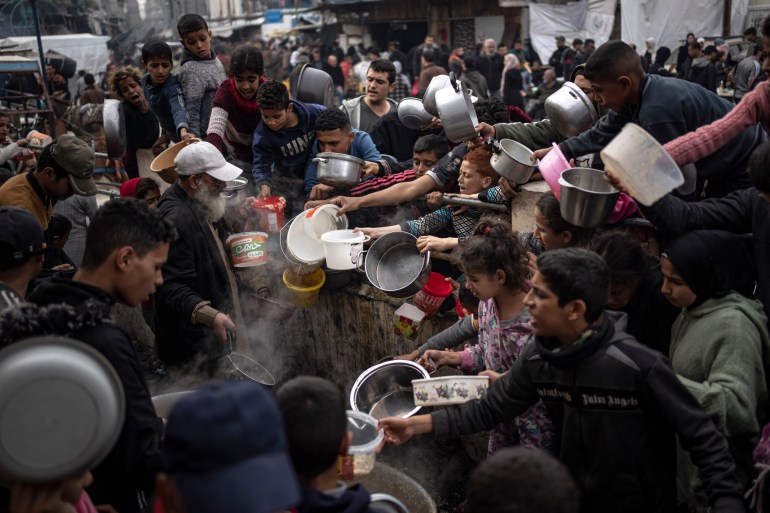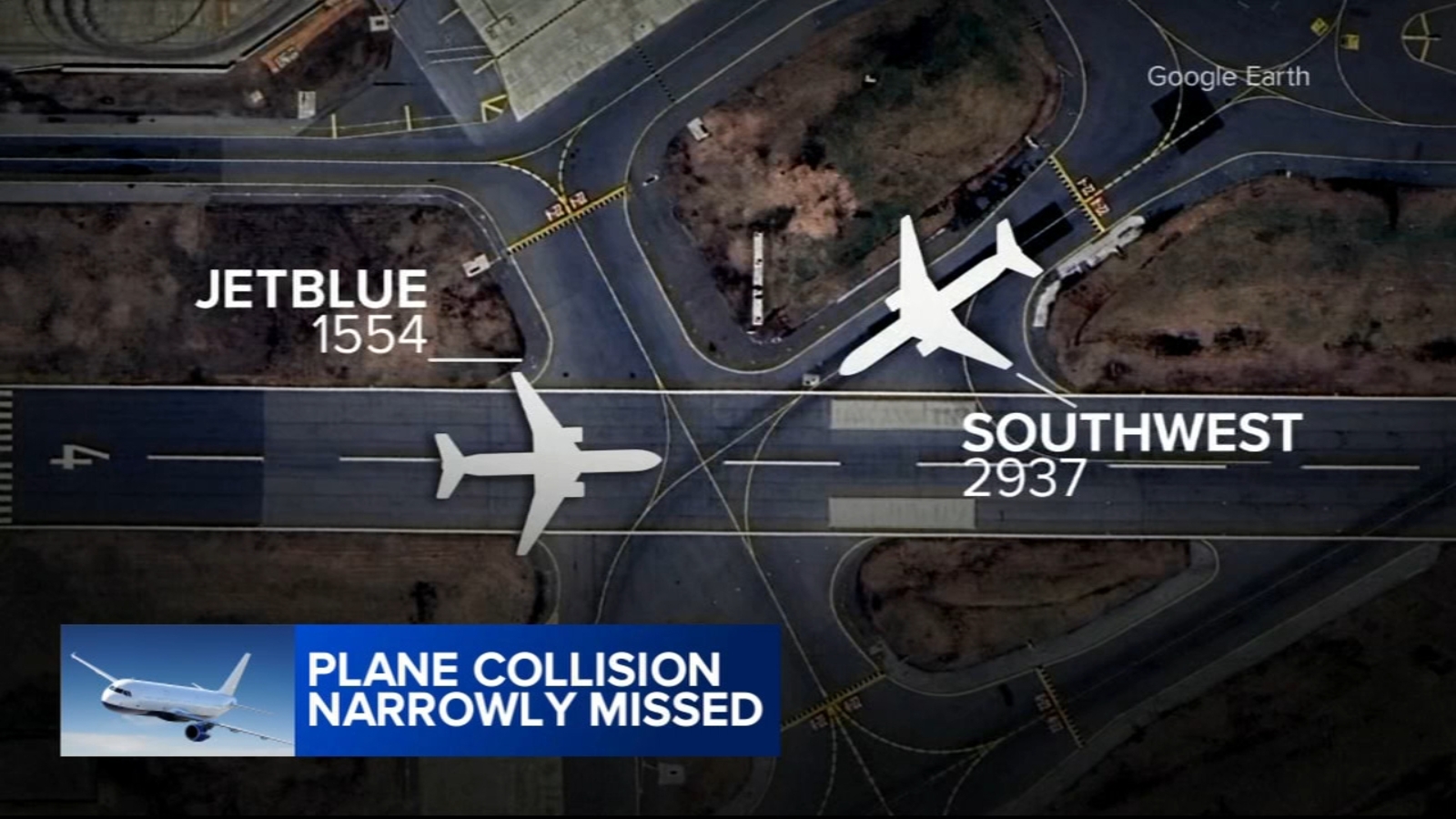Food, Fuel, And Water Crisis In Gaza: Calls To End Israeli Aid Ban Intensify

Table of Contents
H2: The Devastating Impact of Food Insecurity in Gaza
Food insecurity in Gaza is a critical component of the ongoing humanitarian crisis. The prolonged blockade and its economic repercussions have drastically limited access to nutritious food, leading to widespread malnutrition and hunger. High food prices, coupled with restricted imports, leave many families struggling to afford even basic necessities.
- High rates of malnutrition: Children and pregnant women are particularly vulnerable, suffering from stunted growth and increased susceptibility to illness due to malnutrition in Gaza.
- Limited access to nutritious food: The lack of variety and affordability severely impacts dietary intake, increasing the risk of chronic diseases.
- Dependence on insufficient food aid: International food aid is often insufficient to meet the immense needs of the population, leaving a significant gap in food security.
- Increased prevalence of chronic diseases: Malnutrition weakens the immune system, contributing to higher rates of anemia, infections, and other chronic health issues.
- Impact on economic productivity and social stability: Food insecurity undermines economic productivity as individuals struggle to work effectively when hungry, exacerbating existing social instability.
The blockade's impact on agricultural production is also significant. Restrictions on the import of seeds, fertilizers, and agricultural equipment cripple local farming, further reducing food availability and increasing reliance on expensive imports. The resulting food shortages in Gaza fuel desperation and contribute to social unrest.
H2: The Critical Water Scarcity in the Gaza Strip
The water crisis in Gaza is equally alarming. Decades of over-extraction and saltwater intrusion have depleted aquifers, rendering much of the available water unfit for human consumption. This water scarcity in Gaza is a major contributor to the ongoing humanitarian emergency.
- Depleted aquifers and saltwater intrusion: The dwindling supply of freshwater necessitates the use of highly saline water, increasing health risks and environmental damage.
- Limited access to safe and clean drinking water: This leads to a high prevalence of waterborne diseases, placing an extra burden on an already strained healthcare system.
- Over-reliance on aging and inefficient water infrastructure: Outdated pipes and insufficient treatment facilities exacerbate water shortages and contamination.
- Need for investment in desalination plants and improved water management: Significant investment is required to address the water crisis through modern solutions and efficient management techniques.
- Environmental impact of water scarcity: Water scarcity severely impacts agriculture, leading to crop failures and further exacerbating food insecurity in the region.
The consequences of inadequate water sanitation are severe. The spread of waterborne illnesses contributes significantly to the overall health crisis in Gaza, placing a tremendous strain on medical resources and impacting the quality of life for all residents.
H2: The Fuel Shortage and its Ripple Effects Across Gaza
The fuel shortage in Gaza has cascading effects throughout all aspects of life. Restricted fuel imports due to the blockade lead to frequent and prolonged power cuts, crippling essential services.
- Frequent and prolonged power cuts: Hospitals, water treatment plants, and sanitation systems are severely impacted, hindering access to healthcare and clean water.
- Impact on essential services: The lack of reliable electricity severely hampers healthcare, education, and other vital sectors.
- Economic consequences of reduced industrial production and business closures: Businesses struggle to operate, resulting in job losses and increased poverty.
- Limitations on healthcare, education, and other vital sectors: Essential services struggle to function effectively, further compounding the humanitarian crisis.
- The role of the blockade in restricting fuel imports: The blockade directly restricts the flow of essential fuel, preventing vital services from functioning optimally.
The economic repercussions are devastating. Businesses are forced to close, leading to job losses and exacerbating poverty levels. The resulting economic instability further weakens the resilience of the population, making them more vulnerable to the consequences of the crisis.
H2: International Calls to End the Israeli Aid Ban
Growing international pressure is mounting on Israel to lift the blockade and end the suffering in Gaza. International organizations and human rights groups are increasingly vocal in their condemnation of the situation.
- Statements from international organizations like the UN and human rights groups: The UN and numerous human rights organizations consistently condemn the blockade and its devastating humanitarian consequences.
- Calls for increased international aid and pressure on Israel to lift restrictions: There are ongoing calls for increased humanitarian aid and concerted diplomatic efforts to pressure Israel into easing the restrictions.
- Discussions of potential legal challenges to the blockade: Legal actions are being considered to challenge the legality and human rights violations inherent in the blockade.
- The role of NGOs in providing humanitarian assistance: NGOs play a crucial role in providing vital humanitarian assistance, but their efforts are often hampered by restrictions imposed by the blockade.
- The impact of international sanctions on the Israeli government’s policies: International sanctions could be a powerful tool in influencing Israeli policies towards Gaza, but their implementation remains complex and politically challenging.
The international community has a moral obligation to act decisively. The continued suffering of the Palestinian people in Gaza cannot be ignored.
3. Conclusion:
The humanitarian crisis in Gaza, characterized by severe food insecurity, water scarcity, and fuel shortages, demands immediate and decisive global action. The Israeli-imposed blockade is a major contributing factor to this catastrophe, hindering access to essential resources and denying the basic necessities of life to millions. Continued international pressure, coupled with significantly increased humanitarian assistance, is crucial to alleviate this crisis. We must urgently demand an end to the Israeli aid ban and work toward a just and lasting solution that ensures the well-being and human rights of the people of Gaza. Only through concerted global action can we hope to resolve this urgent Gaza crisis and prevent further devastating consequences. Let us unite in our efforts to bring relief and lasting peace to Gaza.

Featured Posts
-
 New Willie Nelson Album Wifes Statement On Sons Role In Care
Apr 29, 2025
New Willie Nelson Album Wifes Statement On Sons Role In Care
Apr 29, 2025 -
 February 26th Nyt Spelling Bee 360 Hints Solutions And Strategies
Apr 29, 2025
February 26th Nyt Spelling Bee 360 Hints Solutions And Strategies
Apr 29, 2025 -
 Nyt Spelling Bee April 3 2025 Clues Answers And Pangram
Apr 29, 2025
Nyt Spelling Bee April 3 2025 Clues Answers And Pangram
Apr 29, 2025 -
 Gambling On Natural Disasters The Troubling Trend Of Betting On The Los Angeles Wildfires
Apr 29, 2025
Gambling On Natural Disasters The Troubling Trend Of Betting On The Los Angeles Wildfires
Apr 29, 2025 -
 Helicopter Plane Near Collision Investigation Uncovers Pilot Negligence At Reagan Airport
Apr 29, 2025
Helicopter Plane Near Collision Investigation Uncovers Pilot Negligence At Reagan Airport
Apr 29, 2025
Latest Posts
-
 Concern Mounts For Missing Midland Athlete In Las Vegas
Apr 29, 2025
Concern Mounts For Missing Midland Athlete In Las Vegas
Apr 29, 2025 -
 Midland Athlete Vanishes In Las Vegas Urgent Search Underway
Apr 29, 2025
Midland Athlete Vanishes In Las Vegas Urgent Search Underway
Apr 29, 2025 -
 Convicted Cardinal Claims Right To Participate In Papal Conclave
Apr 29, 2025
Convicted Cardinal Claims Right To Participate In Papal Conclave
Apr 29, 2025 -
 Update Missing Brit Paralympian Found Following Wrestle Mania Disappearance
Apr 29, 2025
Update Missing Brit Paralympian Found Following Wrestle Mania Disappearance
Apr 29, 2025 -
 Papal Conclave Legal Battle Over Convicted Cardinals Voting Eligibility
Apr 29, 2025
Papal Conclave Legal Battle Over Convicted Cardinals Voting Eligibility
Apr 29, 2025
